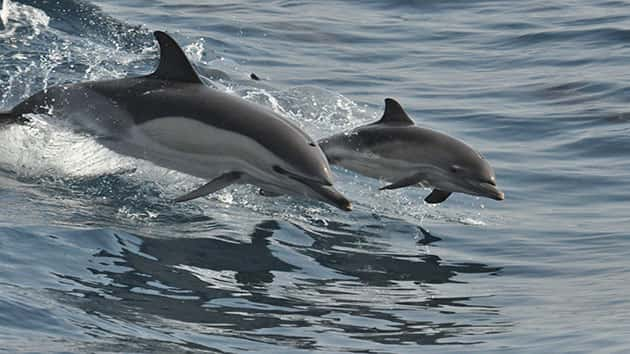 Redders48/iStock/Thinkstock(NEW YORK) — Seven years ago today, an explosion occurred on the Deepwater Horizon oil platform, killing 11 workers and triggering the worst oil spill in U.S. history. It took 87 days to cap the well. During that time, approximately 3.19 million barrels of crude oil flowed into the Gulf of Mexico.
Redders48/iStock/Thinkstock(NEW YORK) — Seven years ago today, an explosion occurred on the Deepwater Horizon oil platform, killing 11 workers and triggering the worst oil spill in U.S. history. It took 87 days to cap the well. During that time, approximately 3.19 million barrels of crude oil flowed into the Gulf of Mexico.
The spill had a huge impact on marine wildlife, including wild bottlenose dolphins living in Louisiana’s Barataria Bay. A study released by the National Oceanic and Atmospheric Administration (NOAA) in April 2016 noted that the spill may have led to historically high death rates and impaired reproductive health for the group of dolphins.
Pregnant dolphins showed an 80 percent reproductive failure rate, either because the fetuses were exposed to oil spill-related compounds or because the mothers’ health suffered from the exposure, according to NOAA Fisheries.
Dolphins exposed to the oil compounds who were not pregnant were more likely to have damaged lungs and adrenal glands, which regulate hormones, and many developed bacterial pneumonia.
Kathleen Colegrove, a Veterinary Pathologist from University of Illinois who specializes in marine mammal pathology, remembered evaluating one dolphin, Y12, who was emaciated. Y12 was found to have severe lung disease on a pulmonary ultrasound. She said it was “one of the most severe phenomena I had ever diagnosed.” The dolphin died less than seven months after its initial evaluation.
According to a report by the National Wildlife Federation, bottlenose dolphins along the U.S. gulf coast from the Florida panhandle to the Texas-Louisiana border had twice the historic death rates in 2014, but even higher where oil concentration was elevated.
“Places that received less oil did not have particularly elevated numbers of dolphin deaths in 2014,” the report said, “while dolphins in heavily oiled Louisiana were found dead at four times historic rates.”
The report added that this is the longest period of above-average death rates in more than two decades and was not attributed to other common causes of death like viruses or red tide.
Further study is being funded by the Gulf of Mexico Research Initiative (GoMRI), which was established through a $500 million financial commitment from BP following the spill.
Copyright © 2017, ABC Radio. All rights reserved.


